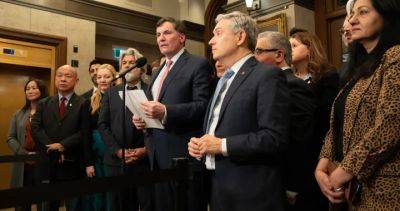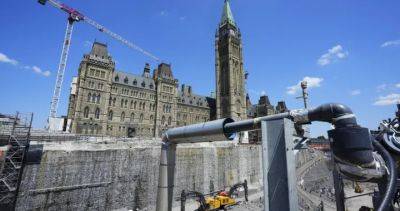Kinew can change Manitoba carbon pricing, but likely not until 2027
Manitoba’s Premier Wab Kinew has signalled he wants to take another look at how the federal carbon price is applied in the province, but it could take up to three years for any change.
The lone province with the federal pollution price being applied across the economy, Manitoba is not treading new ground in looking for a change to carbon pricing.
Currently, the federal carbon backstop is set at $65 per tonne, increasing to $80 per tonne on April 1. The minimum levy will more than double by the end of the current annual increase schedule, hitting $170 per tonne by 2030. The carbon price is applied to fuel such as gasoline in most provinces and territories, but only Manitoba, the Yukon and Nunavut do not have their own carbon pricing systems in place for industrial purposes.
When asked earlier in January if drafting a provincial plan is a course of action Kinew is considering, he talked about Manitoba’s predominantly hydro-based electricity grid and wanting to collaborate with Ottawa.
Under the relevant legislation, any province or territory can introduce its own carbon pricing system if it meets the federal backstop, but jurisdictions can’t just introduce a plan at any moment. Environment and Climate Change Canada (ECCC), says that there will be an interim assessment of the provincial and territorial pollution pricing plans in 2026 to ensure they meet federal criteria for 2027 to 2030. In a statement, ECCC says provinces and territories will be able to again submit their own pollution pricing systems as part of the 2026 interim assessment.
In the last major carbon pricing update back in November 2022, Saskatchewan’s plan for industrial emissions was accepted by Ottawa, joining Alberta, Newfoundland and Labrador, Nova Scotia,






